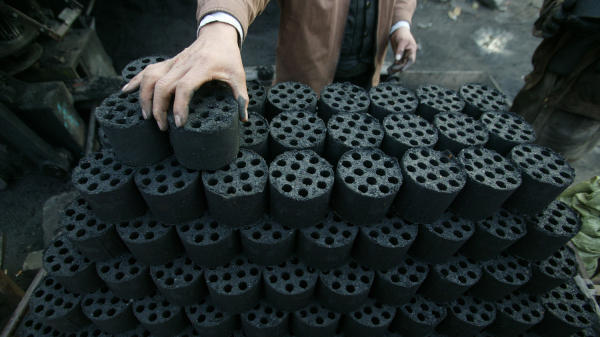Energy use may be capped for 2015
 0 Comment(s)
0 Comment(s) Print
Print E-mail China Daily, May 3, 2012
E-mail China Daily, May 3, 2012
|
|
|
China consumed the equivalent of 3.48 billion tons of coal last year. [File photo] |
An energy consumption cap, equivalent to no more than 4.2 billion tons of coal, may be set by 2015, an expert in the sector said.
A plan has been formulated following two years of talks with provincial-level governments and is awaiting State Council approval, Han Wenke, director general of the Energy Research Institute under the National Development and Reform Commission, said.
Han's institute under the NDRC, the top economic planner, drafted the plan.
"It is still a tough target," Han, who is also guest economist at China Daily, said.
China, one of the world's largest energy users, consumed the equivalent of 3.48 billion tons of coal in 2011, a year-on-year increase of 7 percent.
Policymakers are striking a balance between green and growth.
A target, similar to the energy saving and carbon emission goal, will be allocated to cities and provinces.
"The target for energy saving and emission reduction is a mandatory target, while the target for total energy use will be relatively flexible," Han added.
China has set a target of cutting energy - calculated in units of energy for each unit of GDP - by 16 percent by 2015 from the 2010 level.
But there are loopholes as local governments can achieve their targets by expanding GDP, energy experts said.
Consequently, capping total energy use is seen as possibly more reliable.
However, such a cap raises the possibility of regional interests competing to consume as much energy as possible to maintain growth levels.
Han declined to give the breakdown numbers for provinces, but he said local officials have basically reached a consensus with the central government after several consultations.
"Communications with local officials were much smoother than expected. There was less understanding when we allocated the energy saving and emission reduction target for the 11th Five-Year Plan (2006-10), but now they fully understand that the country must reshape its economic development in this way," Han said.
"Together with the influence of climate change negotiations, they (officials) think it (capping energy use) is an irresistible trend. They just had some doubt about the exact task they needed to undertake."
The plan is almost ready, however no timetable has been released for an official launch, but local governments already know how to implement it, he said.
A number of cities, including Beijing, have released targets for total energy use by 2015. Beijing announced a target equivalent to 90 million tons of coal in 2015 and its coal consumption not to exceed 20 million tons.
The municipality has allocated targets to districts, counties and major industrial sectors.
The targets unveiled by local governments are voluntary after consultation with the NDRC, but these are not targets allocated by the government, said Yao Fei, a senior official of the Beijing municipal commission of development and reform.
"No doubt total energy control will affect GDP growth," Yao said. "But total energy control is something the country will definitely do in the coming years due to environmental concerns and energy security."
Experts on the environment, however, expressed their doubts about total energy control. Yang Fuqiang, senior adviser on climate, energy and environment for the Natural Resources Defense Council China Program, suggested that the government control the use of coal instead of total energy.
"Control of energy use needs more resources and labor input and the use of clean energy should not be controlled. Under these circumstances, I think we should control coal use as a priority," Yang told China Daily.
Yao disagreed, saying the total energy control is a must.
China's rising dependence on imported oil is threatening the country's energy security, he said.
Long-term target
Han, of the NDRC, said the country's target is to keep its total energy consumption below 5 billion tons of coal equivalent by 2030. This will be achieved through development of more non-fossil energies.
Han said the target for total energy use for 2020 would be more difficult to work out for policymakers.
At the climate change meeting in Durban, South Africa in December, the European Union proposed all parties should enter into a legally binding agreement on climate change after 2020.
Han said China has no problem in attaining this year's targets for slashing energy consumption and carbon emissions, after the nation missed its 2011 targets.
China has slowed its economic growth by setting a 7.5 percent goal for this year and an annual growth target of 7 percent for the years to 2015.






